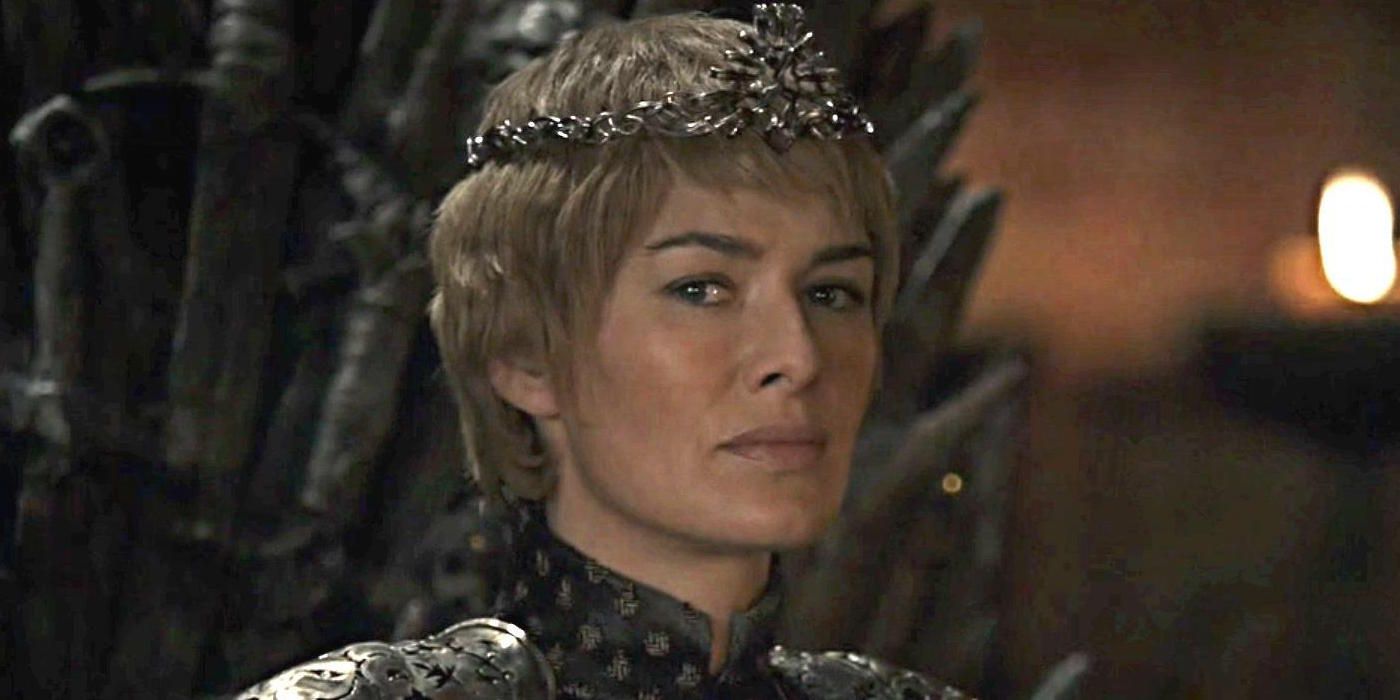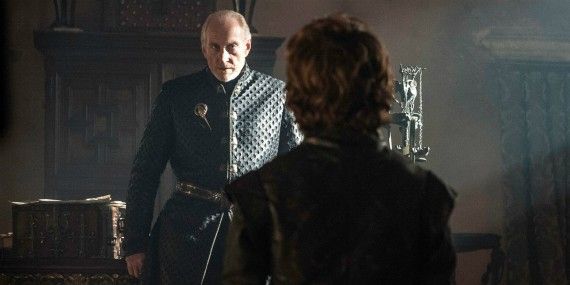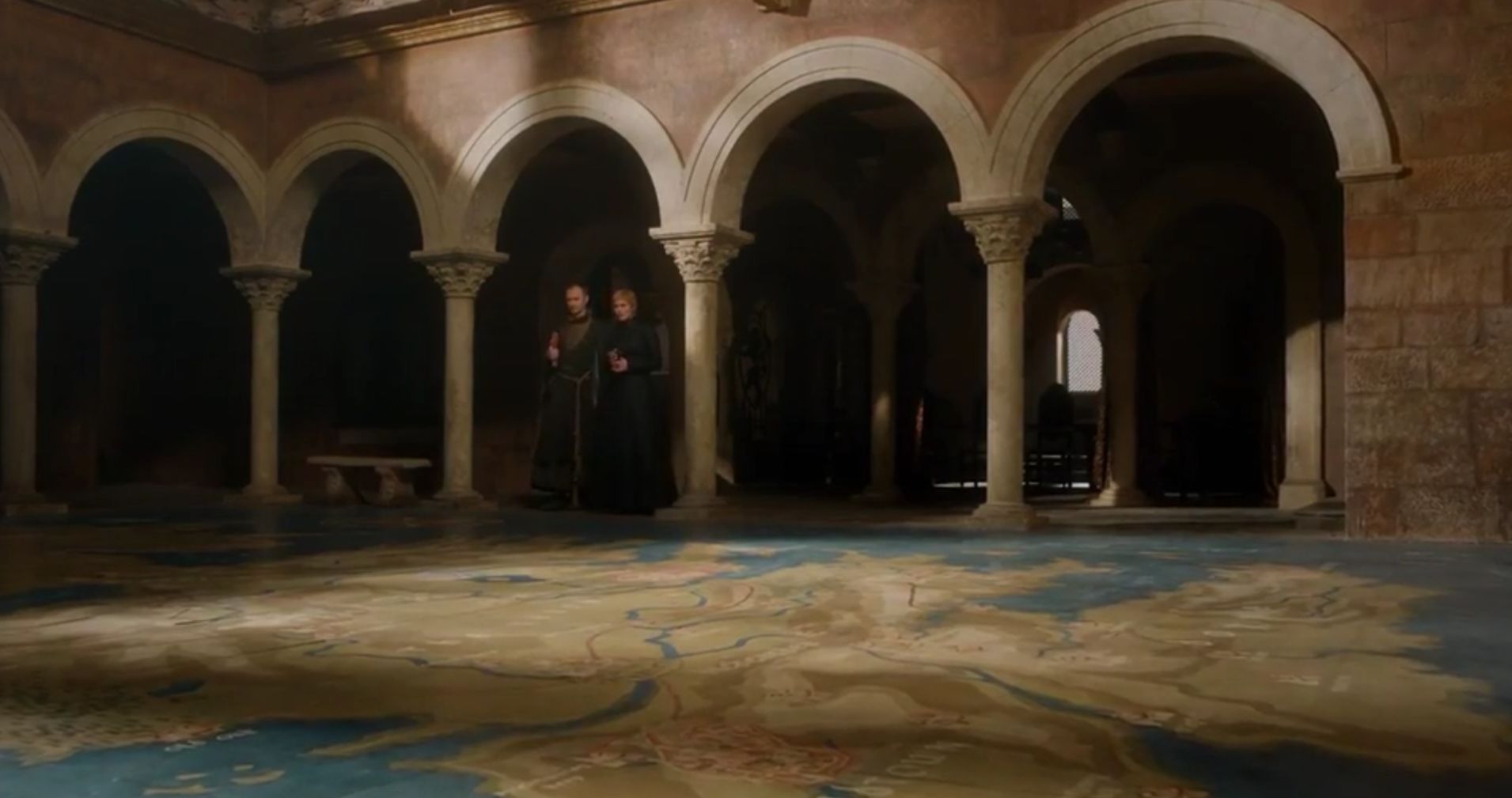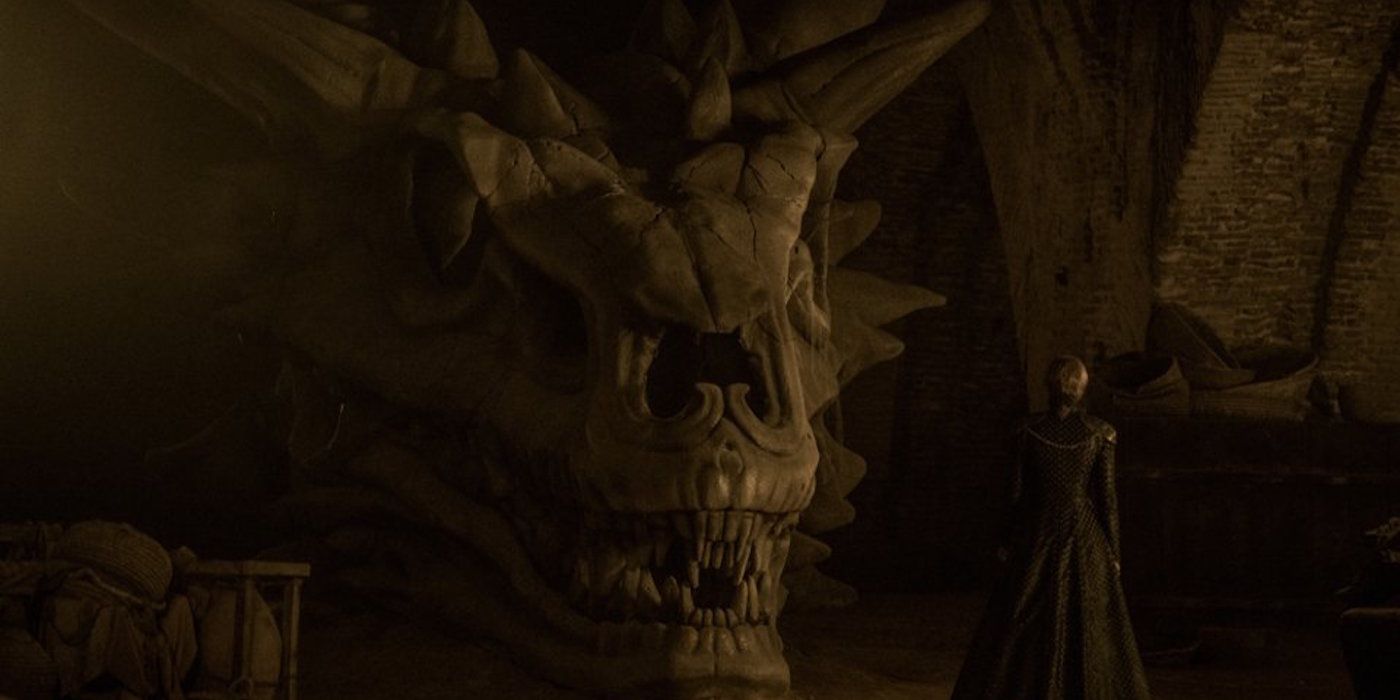"The Lannisters always pay their debts" is the favored catchphrase of what's currently the dominant House and family in Westeros. However, the dirty secret of the Lannisters - different from the other dirty secret between Queen Cersei (Lena Headey) and her twin brother Jaime Lannister (Nikolaj Coster-Waldau), which is more or less common knowledge these days - is that the Lannisters are deeply in debt. For centuries, Casterly Rock and the vast gold deposits in its mines made the Lannisters the wealthiest family in Westeros. The family's deceased patriarch Tywin (Charles Dance) used that wealth to acquire power and influence, launching a series of events that have resulted in three Lannisters seated upon the Iron Throne, including Cersei, its reigning occupant. However, all of this grasping for ever-more-power came at a literal financial cost: the gold mines of Casterly Rock ran dry years ago and the family coffers are depleted. In short, until this week's episode of Game of Thrones, the Lannisters were broke.
In a macro sense, the Lannisters' debts are also the Iron Throne's debts, and there is no entity the Seven Kingdoms owe more money to than the Iron Bank of Braavos. Located across the Narrow Sea in the Free City of Braavos, the Iron Bank is the most dominant and powerful financial institution in Game of Thrones. Its influence spreads across Westeros, Essos, and the unseen reaches of the known world. What's more, the Iron Bank has a catchphrase of its own, one that is rightly feared by all indebted to it: The Iron Bank will have its due.
In this week's episode "The Queen's Justice," a rare instance of the Iron Bank coming to collect a debt occurs. The Iron Bank's primary representative Tycho Nestoris (Mark Gatiss) visits Cersei at King's Landing to discuss the Crown's overdue accounts. The financial peril facing the Lannisters manifests across the entire Seven Kingdoms they are trying to secure their dominion over. To understand how the Iron Throne came to owe untold millions of Gold Dragons to the Iron Bank, we have to go back to uncover the gross malfeasance of Cersei's predecessors.
The Iron Bank and Westeros
The legacy of King Robert Baratheon (Mark Addy) is as a drunken, whoring misanthrope who had no interest in ruling the Seven Kingdoms. He left the actual hard work of running Westeros to his Small Council. Robert's Master of Coin, Lord Petyr Baelish (Aiden Gillen) paid for the Crown's corpulence by borrowing heavily from Tywin Lannister's fortune. Tywin was more than happy to financially support the Iron Thone, and thus the Seven Kingdoms, since it consolidated his personal power, his grandson Joffrey (Jack Gleeson) was heir to the throne, and his daughter Cersei was the Queen. However, Littlefinger was also secretly borrowing money from the Iron Bank, to the point where the Crown was 6 million Gold Dragons in debt to the Lannisters and to the Bank by the time Eddard Stark (Sean Bean) briefly became Hand of the King. Tyrion Lannister (Peter Dinklage) discovered the Seven Kingdoms' financial peril when he assumed the duties of Master of Coin in season 3.
The War of the Five Kings further increased the massive debt the Seven Kingdoms owed to the Iron Bank, worsened by how deeply intertwined the Lannisters' finances were to the Crown's. This was further exacerbated by the fact that Tywin, who became Hand of the King at the end of season 2, was guarding the secret that Casterly Rock's gold mines depleted 3 years prior, and he himself was borrowing money from the Iron Bank to fund the Seven Kingdoms. When Joffrey married Margaery Tyrell (Natalie Dormer) and made her Queen, Tywin intended the union between the Houses of Lannister and Tyrell, the second wealthiest House in Westeros, to provide some financial relief. (It's possible Tywin was plotting to eventually gain control of House Tyrell's wealth and resources to supplement his own, which Cersei would eventually accomplish.)
By the time Tommen Baratheon (Dean Charles-Chapman) became King, the Crown was even further in debt to the Iron Bank - said to be "a tremendous amount of money." The Iron Bank called upon the Iron Throne to pay back one-tenth of the money that was owed. The new Master of Coin, Tommen's father-in-law, Mace Tyrell (Roger Ashton-Griffiths), noted that the Crown only had half of the one-tenth the Iron Bank demanded. Mace was dispatched to Braavos to meet with the Iron Bank and managed to negotiate new terms, but this only delayed full payment of the ever-increasing debt.
A different would-be king of Westeros visited the Iron Bank in season 4. Stannis Baratheon (Stephen Dillane) and his Hand Davos Seaworth (Liam Cunningham) called upon the Iron Bank to fund their failing campaign in Westeros. At first rebuffed, Davos convinced the Iron Bank that the Lannisters were unloved by the people, untrustworthy, and incompetent compared to Stannis' steady hand and true claim to the Iron Throne. The Iron Bank agreed to an arrangement for a provisional loan and Stannis used the influx of funds to finance his campaign to help the Night's Watch defeat the White Walkers in the Battle of Castle Black. When Stannis died in his foolhardy attempt to siege and take Winterfell from Ramsay Bolton (Iwan Rheon), the Iron Bank's investment went up in smoke.
Page 2: [valnet-url-page page=2 paginated=0 text='What%20Can%20Cersei%20Offer%20the%20Iron%20Bank%3F']
What Can Cersei Offer the Iron Bank?
When Tycho Nestoris met with Queen Cersei in King's Landing, he found the Queen remarkably confident of her bargaining position despite being well-aware of how deeply the Iron Throne is indebted to the Iron Bank. Cersei reminded Tycho that Daenerys Targaryen (Emilia Clarke) has been more of a thorn to the Iron Bank's investments and profit margins than a potential friend. The Iron Bank was heavily involved in the centuries-old slave trade in Essos; this line of profit was brought to an end by Daenerys' liberating the slaves of the continent as "The Breaker of Chains." The Iron Bank also has no history of dealing with Daenerys, whereas the Bank has a long, established relationship with the Lannisters and the Iron Throne.
Cersei asked Tycho to remain in King's Landing for a fortnight, after which he would find the Crown's debts to the Iron Throne repaid in full. What Cersei knew that Tycho did not was that a campaign to take House Tyrell was underway. Cersei had pulled the bulk of the Lannisters army from Casterly Rock and united them with the army of Randyll Tarly (James Faulkner), which was negotiated in last week's episode. Victory came quickly: the Lannister and Tarly force overwhelmed the much weaker Tyrell army and easily took Highgarden. Jaime personally made sure Lady Olenna Tyrell (Diana Rigg) met her demise by poisoning. By wiping out what was left of House Tyrell once and for all, the Lannisters acquired the Tyrells' vast wealth, once again making them the richest family in Westeros. (Somewhere, Tywin must be pleased.)
With the Tyrells' gold enriching the Lannisters' coffers, Cersei now has the capital to finally pay back the Iron Bank and free themselves from the shackles of destitution. However, there are other things Cersei can offer the Iron Bank, such as revenge, via the elimination of Daenerys Targaryen, who has cost the Iron Bank a fortune in the slave trade.
The war with Daenerys for the Iron Throne is going surprisingly well for Cersei. With what was believed to be an overwhelming alliance Daenerys had assembled between her Dothraki, the Unsullied, the Ironborn, the Dornish, and the Tyrells - not to mention her three dragons - it seemed fait accompli the Mother of Dragons would easily conquer King's Landing. So far, Cersei has defied popular opinion and established a shocking dominance in these early stages of war. Thanks to Euron Greyjoy (Pilou Asbaek), Daenerys' armada has been annihilated, her key allies Ellaria Sand (Indira Varma), Yara Greyjoy (Gemma Whelan), and Olenna Tyrell have been captured or killed by Cersei, and the Dothraki and Unsullied are under siege at Casterly Rock. Daenerys is losing the war badly. At this point, Cersei has every right to feel confident her claim to the Iron Throne will win out in the end.
Therefore, besides full repayment of money owed, Cersei can offer the Iron Bank something else of immeasurable value: dragons. Though the plan concocted by Qyburn (Anton Lesser) to kill Daenerys' dragons via a very big crossbow is questionable at best, Cersei seems confident the mighty dragons can be neutralized. If this can be done, a living dragon would make a splendid gift to the Iron Bank - and it keeps such a dangerous creature far away from Westeros and Cersei. Daenerys herself would be an invaluable prisoner to the Iron Bank and to the Masters of Essos to whom she is an enemy, though it's far more likely that Cersei would have the Mother of Dragons put to death. Either way, the extraordinary patience the Iron Bank has shown to the musical chair that is the Iron Throne seems to be paying off at last. Thus far, Cersei has proven herself to be a worthy investment.




